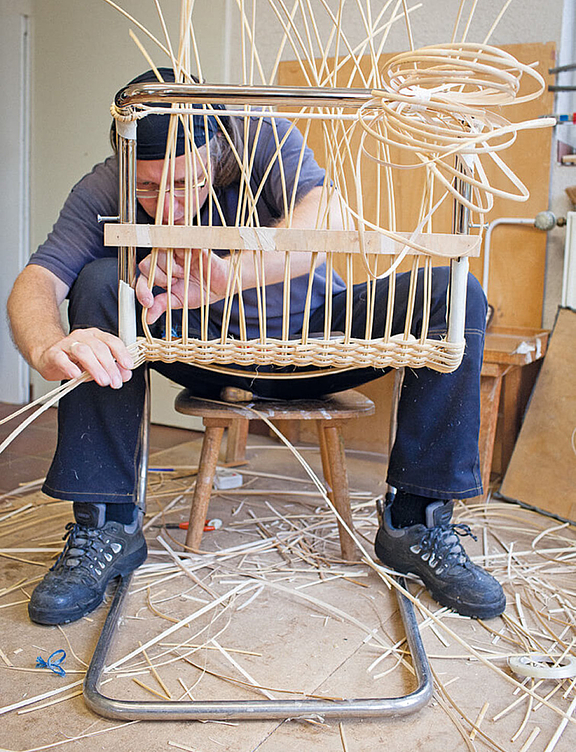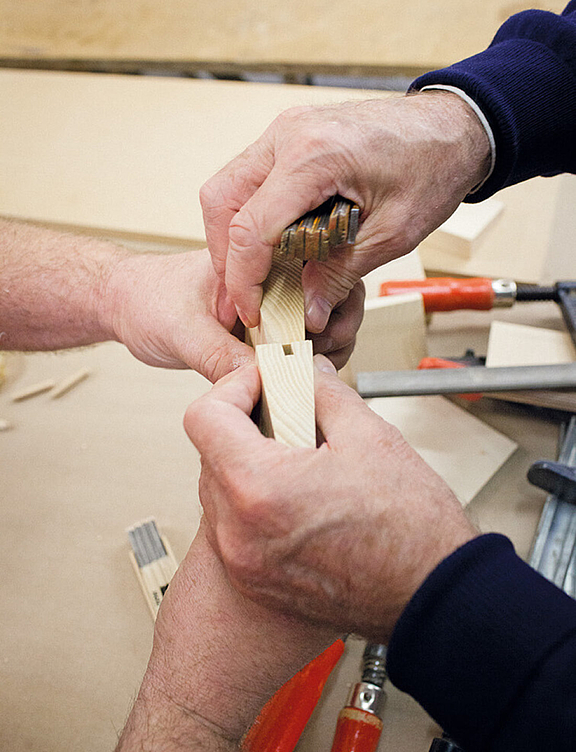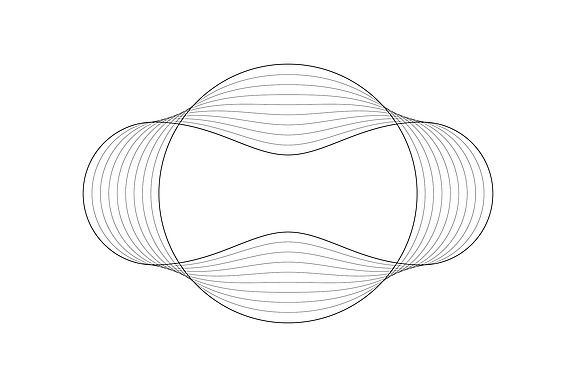
About
Tecta

Tecta
Full of tradition
Never before has tradition been as valuableasit is today. Tecta is synonymous for theBauhaus movement – but with a forward-thinking approach.
Lauenförde lies along the undulating banks of the river Weser. For over 40 years avant-garde designers have flocked to the town with a population of 3,000: be it British architects Peter & Alison Smithson, Mies vander Rohe’s architect, Sergius Ruegenberg, Jean Prouvé, Stefan Wewerka or the great Bauhaus thinkers such as the Gropius family.
Today run by Axel Bruchhäuser and his nephew Christian Drescher, Tecta’s mission and responsibility is to preserve and review the best ideas and designs of modernism as created by the Bauhaus movement in Weimar or Dessau. In addition, we are driven by the desire to think forward, enhance and adapt them.
Once you have identified and understood a problem, you can solve and develop it further – that’s evolution. We find new approachesin innovative materials and techniques, for example. Trends are now interchangeable, while cycles are becoming shorter and shorter. We believe that constantly replacing products is unecological and uneconomical. Our mission is to lengthen the lifespan of good designs, both from a social and ecological point of view.
Tecta unites craftsmanship, values and family tradition with the Bauhaus school of thought. This is what makes the company so unique with its cycle of developing and cherishing what the Bauhaus movement once taught and merged with traditional craftsmanship. Both today and yesterday.

Facts
Bauhaus Specialists:
With around 30 faithful and licensed Bauhaus re-editions Tecta is the leading producer of Original Bauhaus designs.
Foundation:
Tecta was founded in 1956 by the architect Hans Könecke in Lauenförde. In 1972 Werner and Axel Bruchhäuser took over the company with the objective of making classic modernism popular in Germany.
Hallmark:
30 original designs with the Bauhaus label. The Bauhaus Archives in Berlinaward their »Original Bauhaus« label for faithful licensed re-editions only to a few products. But Tecta boasts around 30 designs – chairs, tables, armchairs and sofas – with the coveted label. This makes Tecta the leading producer of faithful and licensed Bauhaus re-editionsin this segment.
Production site for 60 years:
Until this very day, Tecta’s production facilities have been located in Germany, in Lauenförde on the river Weser. The main advantage of the region and this location is its close proximity to many suppliersof the furniture and crafts in-dustry. For 60 years Tecta hascommitted above all to traditional craftsmanship and adapting its products to individual customer specifications.
Special features:
The TECTA Kragstuhlmuseum was created on the company’s premises in Lauenförde in 1979. On 3,000 square metres the museum features the largest collection of cantilever chair designs. The Tecta Archives include important documents on the Bauhaus and its designers.
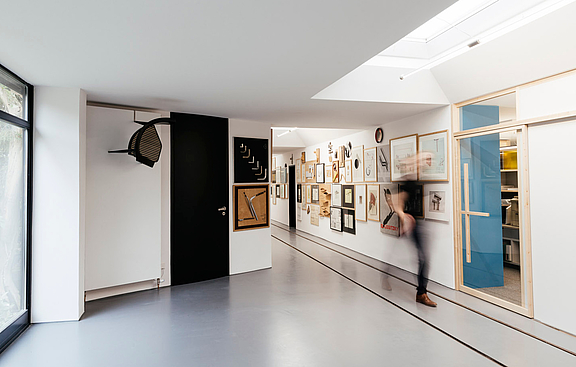
Employees
40
Production space
3,000 square metres
Production
100% made in Germany
Most important markets
Germany, Japan, Netherlands, Switzerland, ItalyAlliances: Bauhaus Archive Berlin, TU Delft
Museums and collections
Design Museum London,Bauhaus Archives Berlin,Neue Sammlung Munich,Museum of Modern Art New York, Bauhaus-MuseumWeimar, Stedelijk Museum Amsterdam, ETH Zurich, Marta Herford, BauhausDessau, Architekturmuseum Frankfurt
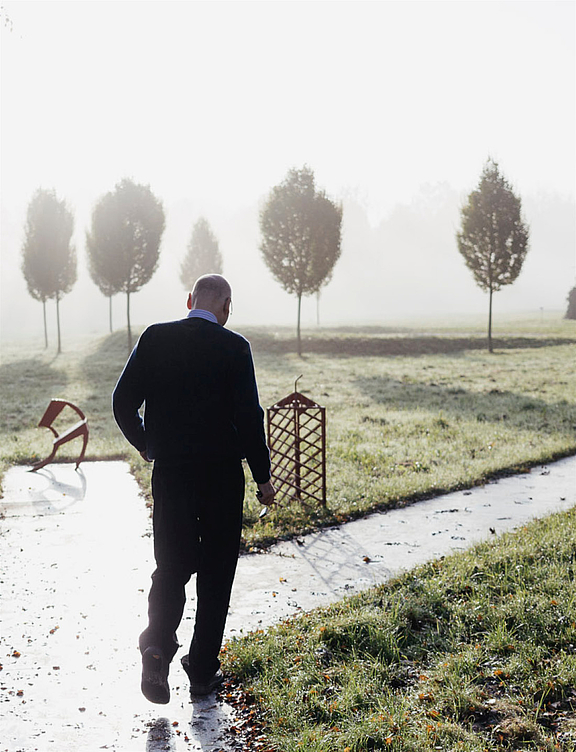
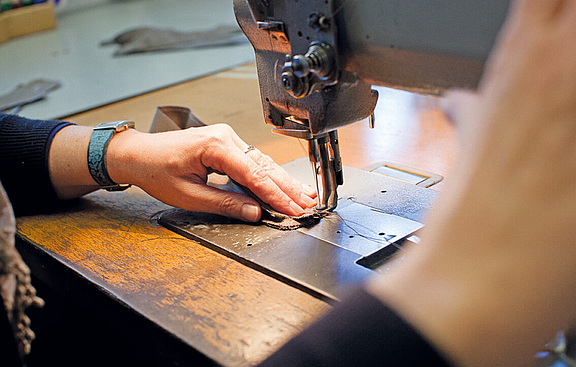
The workshops
A walk through the production facilities is an olfactory experience. With its smells of sawdust, cut metal, leather and lacquer »you could navigate the Tecta factory blindfold,« as British architect Peter Smithson put it.
The workshops are tidy and well-organised. In the centre of the sewing room and fabric warehouse dozens of possibilities lie waiting on a long counter: soft leather in a wide variety of colours, fabrics from artisanal collections. »More and more people seek something truly special,« says Christian Drescher, who runs the company in the third generation together with Axel Bruchhäuser. »They want a piece of furniture that nobody else has.«
This is another Tecta hallmark: customer specifications, personalised products – out of the question for most companies. But Tecta has the confidence to meet customer requirements that go far beyond its product range. This fits in well with its objective of carrying forward the legacy of Bauhaus. A mission that seems to be at odds with all fundamental economic principles but is so successful precisely for this reason.
